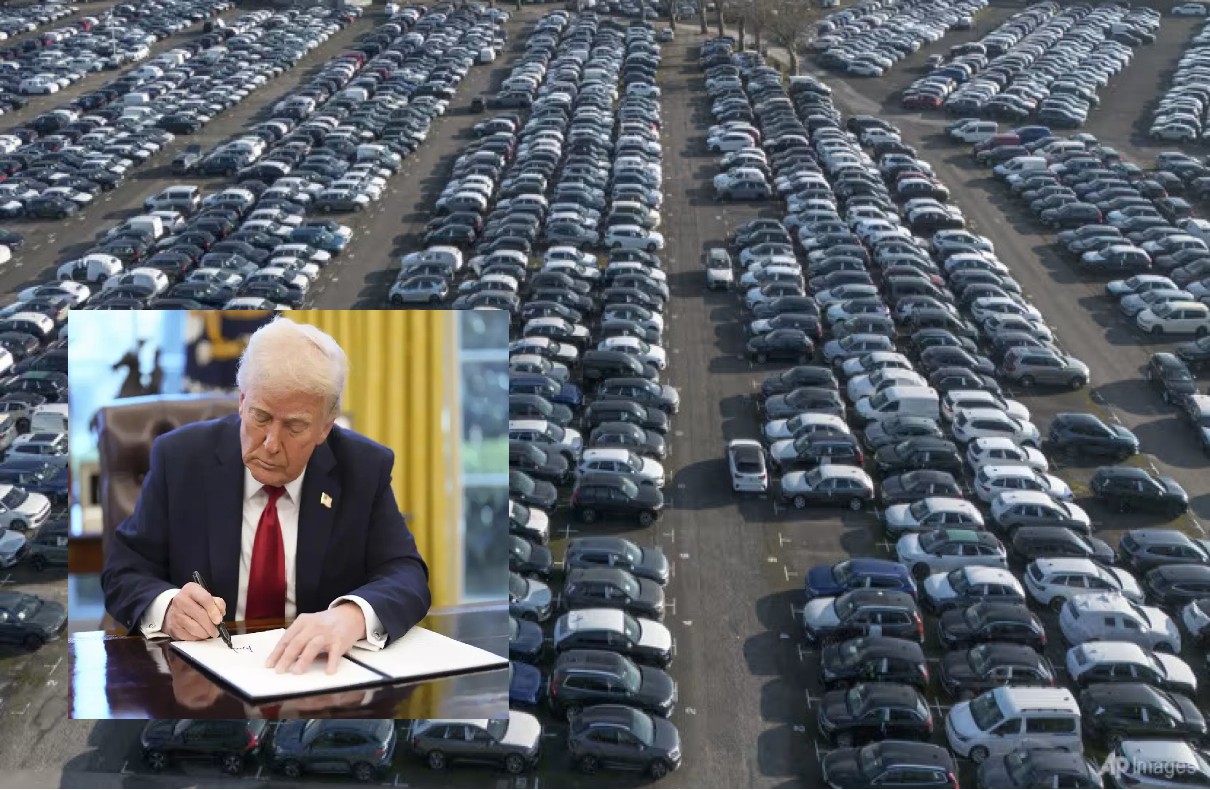U.S. President Donald Trump said Wednesday he is imposing a 25 percent tariff on imported vehicles and components.
The White House claims it will boost domestic manufacturing, but could also put financial pressure on automakers that rely on global supply chains.
“It will boost growth,” Trump told reporters. We will effectively charge 25 per cent. The tariffs are expected to generate US $100 billion in annual revenue for the White House. However, it will not be easy as American automakers also buy many of their parts and components from around the world.
The tax hike, which begins in April, means automakers could face higher costs and lower sales. However, Trump argues that the tariffs will open more factories in the US and end the “wasteful” supply chain through which auto parts and finished vehicles are manufactured in the US, Canada and Mexico.
“This is a permanent (decision),” Trump said, underscoring his seriousness about the tariff directive he signed. The President said the duty on vehicles will be levied from April 3. Meanwhile, shares of General Motors fell nearly 3 percent in Wednesday’s trading. Ford’s stock rose slightly. Stellantis, which owns Jeep and Chrysler, also fell about 3.6 per cent.
“We’re seeing significant increases in vehicle prices,” said Mary Lovely, senior fellow economist at the Peterson Institute for International Economics. ”
“We will see fewer options. The burden of such vehicles falls more on the middle and working class. He said most families would be forced out of the new car market, which already has an average price of about USD 49,000, and would have to switch to older vehicles.
If the entire burden of taxes is passed on to the consumers, the average price of an imported vehicle can go up by USD 12,500, pushing up the overall inflation. Global leaders have been slow to criticize the tariffs, a sign that Trump could escalate a broader trade war that could hurt growth around the world.
“This is clearly a direct attack,” Canadian Prime Minister Mark Carney said. We will protect our employees. We will protect our companies. We will protect our country. Carney said he would have to see the details of Trump’s executive order before taking retaliatory action.
He described the move as inappropriate and said he would leave the campaign and travel to Ottawa on Thursday to chair his Cabinet’s special committee on US relations. In Brussels, European Commission President Ursula von der Leyen regretted the US decision to target auto exports from Europe and the European Commission vowed to protect consumers and businesses.
“Tariff taxes… are bad for businesses, equally bad for consumers in the US and EU,” he said in the statement. “

